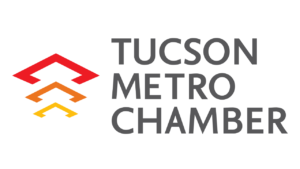SIGN IN

Philanthropy at its Finest: Helping those in need since 1959
Philanthropy at its Finest
Helping those in need since 1959
By Marion Steele | Secretary at Assistance League of Tucson
From its founding as The Service League of Tucson in 1959 by 22 civic-minded women, until 2022 when more than 330 volunteers work to lessen the burdens of Tucson’s most vulnerable, Assistance League® of Tucson evolved in response to ever-changing social and economic conditions. Sixty-three years ago, the founders of the predecessor organization provided in-home help to Tucsonans during illness and recovery. Today, the Assistance League of Tucson sponsors five major philanthropic programs that address a wide range of community needs. Last year, we helped to better the lives of almost 10,000 children and adults; our goal is to serve 11,000 people in the coming fiscal year.
Expanded reach
The Service League of Tucson’s first program, Homemaker Services, was initially supported by community agencies and patrons. By 1963, better established in terms of volunteers and finances, the organization became a chapter of the Assistance League and changed its name to Assistance League of Tucson. In the following decades, programs that evolved followed a new business model that allowed our organization to expand its reach exponentially—instead of dealing one-on-one with recipients, Assistance League of Tucson leveraged its delivery system through partnerships with school districts and social service agencies.
The first program based on this new business model began in 1985 as Survivors’ Kits, subsequently renamed Starting Over Supplies, which initially had three partner agencies. It is now Assistance League of Tucson’s second-largest program. Working with 31 social service agencies, Starting Over Supplies provides new basic household necessities—bed and bath linens, cookware, dishes and other kitchen essentials—to individuals and families who have lost housing and are attempting to get back on their feet. Almost 2,000 people were program recipients last year.
Clothes on their backs
Assistance League of Tucson’s largest program, Operation School Bell®, was instituted in 1994 to provide clothing and shoes to children attending Title 1 schools. Since then, this program supplied brand-new clothing and shoes, plus hoodies and backpacks, to nearly 80,000 children. Many recipients of the program do not have clothes in which to attend school. Often siblings must attend school on alternate days because they have to share clothing and shoes. Last year, pandemic-induced closures resulted in a temporary change in the way clothing was supplied, and vouchers or backpacks filled with basic new clothes were given to school representatives to distribute. This year, the method of distribution will be hybrid. Students in uniform schools will receive clothing on campus while non-uniform schools will be given vouchers to shop at Target on designated days. Our goal is to help clothe 4,700 students.
Our third largest program, Assault Survivors Kits® was established to restore a measure of dignity to those who have experienced physical or sexual assault. Because victims’ clothing is kept as forensic evidence, they are left with nothing with which to leave the hospital. Abuse and domestic violence rose significantly during the pandemic increasing demand for the kits. Working with three social service agencies, the Assault Survivors Kits program provided basic clothing and toiletries to almost 2,000 victims last year.
Bears and books
The organization’s other two programs, the Teddy Bear Program and Hooked and Books, began in 1989 and 1991, respectively. The former program delivers teddy bears to 12 hospitals, law enforcement agencies and children’s social service agencies that, in turn, distribute them to children who are experiencing neglect, abuse, sadness or fear. A simple thing such as a cuddly teddy bear can give a world of comfort to a traumatized child. Hooked on Books’ mission is to provide new books to schools, where they may be used in school libraries or given to children to read in their homes. Many children, whose parents struggle to put a roof over the heads of their family, have never had a book of their own. Last year, almost 1,700 books were delivered to three participating schools and to the Children’s Advocacy Center.
Resilience and hope
Approximately 60-65% of funding for Assistance League of Tucson’s programs derives revenues from thrift shop sales; the remainder comes from donations and grants. When the pandemic hit in early 2020, the thrift shop was closed for many months, depriving us of our major source of income. Difficult decisions had to be made to fulfill our commitment to our community. We adapted by cutting costs, creating new revenue streams, and temporarily redesigning programs. To bridge the loss of income from the thrift shop, we established an online shop, which not only created a new revenue stream, but we also reached a new demographic of shoppers.
Because of changes made in response to the pandemic, we are now even better positioned to carry out our mission. We attribute our success to our more than 330 members who contributed 34,124 hours last year (valued at $955,472 according to the U.S. Department of Labor), to the generosity of donors, and to the patronage of loyal thrift shop customers. With their continued support, we hope to serve the Tucson community for another 60+ years.
